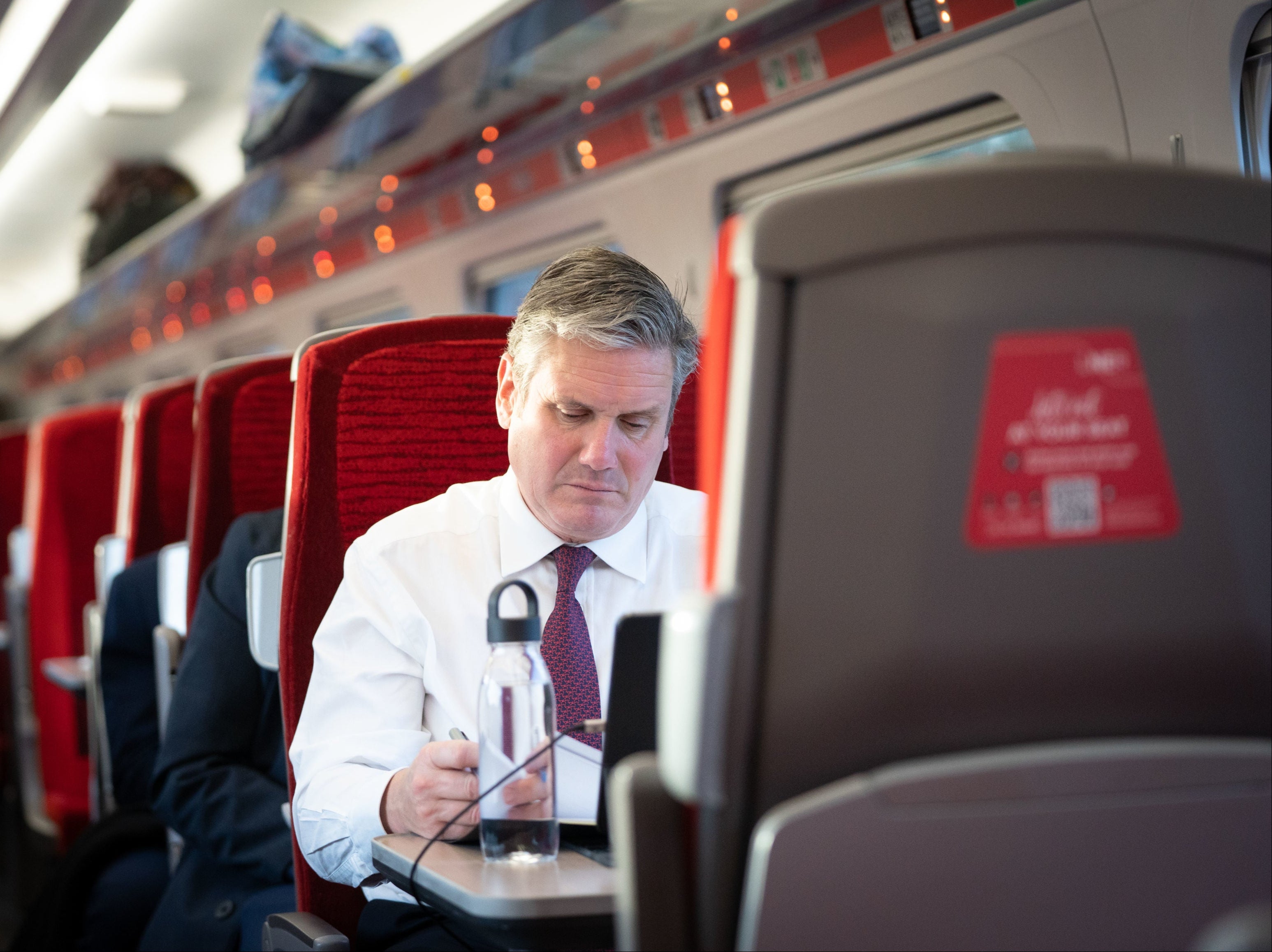There’s something missing from Keir Starmer’s assault on the Tories
The Labour leader might win if Boris Johnson makes a complete mess of things, writes John Rentoul, but where is the plan for the future?


Keir Starmer is more like John Smith than Tony Blair. He is hoping that governments lose elections rather than that oppositions win them; and he believes that the job of an effective opposition is to take tactical shots at the government to weaken it, while showing himself to be competent.
Blair didn’t think that was enough, learning from the New Democrats in the US that the pitch had to be “change, versus more of the same”, with a dramatic promise to modernise the country.
Judging by Starmer’s interview with Justin Webb on the Today programme this morning, it is possible that he could just deny the Conservatives office at the next election by Boris Johnson being useless, but what was lacking was any sense that Labour has an idea of how to transform the country, and especially the economy.
Webb started by asking about rail, as that is the big story of the week, but Starmer seemed impatient to get on to discussing what is going well for Labour at the moment, namely Tory MPs’ second jobs.
That meant the Labour leader passed up any chance to set out a long-term plan for growth, and managed to look backwards. Asked if a Labour government would build the high-speed line that Johnson has cancelled, he said: “That was in our manifesto last time and we would build it.”
This was categorically the Wrong Answer. The manifesto last time, when Jeremy Corbyn was leader and Labour was crushed, is not the place to start, when the question was an open invitation to set out how Labour would invest, decarbonise and do exciting things that would raise long-term productivity.
It doesn’t have to make much sense: I personally agreed with Caroline Lucas, the Green MP, that HS2 is a terrible idea and that doing less of it is a... well, she says now that it is a betrayal of the environment, but I agreed with her before she changed her mind, and think this is a chance to rethink the whole of our transport policy with the climate crisis in mind, which means electric vehicles are more important than a few new railways for the middle classes.
But the point is that Starmer could have talked about policies for the long term that are much more ambitious than anything the government is doing, that would produce a better return for public investment and save the planet. He could even have made the case for HS2 – capacity, connectivity, productivity, growth. As I say, it doesn’t have to make much sense, but anything is better than talking about what was in the last Labour manifesto.
Still, Webb didn’t waste much time on that, and was soon on to “sleaze”, only for Starmer to find himself immediately on the defensive. Would he ban the kind of work he used to do, such as legal advice for the Gibraltar government? “Yes.” So he thought it was all right to do that kind of work at the time? Starmer scuttled for the lawyerly third person, saying it was not for him “to judge anyone who has acted in accordance with the rules in the past”.
To be fair, Starmer made his attacks effectively enough, pointing out that the prime minister’s first instinct when Owen Paterson broke the rules was to change the rules, and repetition is essential for effective communication. However, early-morning Radio 4 is not the most suitable venue for that given, for example, that journalists will be listening for fresh quotations at the start of the day.
What he had to say about small boats crossing the Channel was reasonable enough, although his central message was that we need stronger agreements with France to stop the boats setting off in the first place, which will generate zero headlines.
Then Starmer was caught out by the simplest of questions, thrown in casually towards the end. “Would Jeremy Corbyn have been a better prime minister” than Johnson, Webb asked. Starmer failed to answer, and failed to turn the question round to the choice at the next election, which gave Webb the chance to ask it again and again, and to point out that he hadn’t answered it.
“A Labour government is always better than a Conservative one,” Starmer said on the third or fourth attempt. So Corbyn would have been a better prime minister, Webb concluded, and Starmer neither confirmed nor denied, trying to talk out the clock by claiming the rule changes made at the last party conference were “a boring process” – what a sales pitch for the closing seconds of a big interview – “but they don’t half show we’ve changed the party”.
Once again, Starmer showed his inexperience. He has been in politics for only six years, and is having to learn the art of effective communication while occupying the post of alternative prime minister. Sometimes he does well enough. Most of the time he is convincing as boringly competent, and he might be able to persuade enough people he could run a government more efficiently than Boris Johnson, the lord of chaos, if the prime minister’s jokes do indeed wear thin with new Tory voters. But what is missing is an economic policy – a long-term plan for growth – and the basic communications skills to sell it.






Join our commenting forum
Join thought-provoking conversations, follow other Independent readers and see their replies
Comments